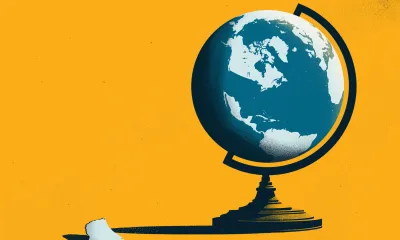
作者/Author(s): Da Wei
網站來源/Source: Foreign Affairs
日期/Date: 07/29/2025
關鍵字/Keywords: 外交、中國、烏克蘭
摘要:
俄烏危機導致中國在西方與俄羅斯之間左右為難。北京希望戰爭盡快結束,同時願意為了自身戰略利益居中斡旋。雖然中國是調解俄烏危機的關鍵角色,但斡旋過程仍面臨許多挑戰。
國內說法相互矛盾
國內說法相互矛盾
- 中國內部的民眾、學界與決策者對於戰爭起因及責任歸屬意見有所分歧。
- 有些人同情烏克蘭,是因為聯想到自身曾遭外國侵略的歷史。而且中國長期強調堅持聯合國原則,包括尊重國家主權與反對對主權國使用武力。此外,自蘇聯解體以來,中國一直與基輔維持良好關係。
- 也有人認為這場戰爭是冷戰後前蘇聯國家間尚未解決的問題。他們也將責任歸咎於西方,認為西方忽視俄羅斯關注的核心議題與不滿,單方面採取圍堵政策,導致俄羅斯在東歐地區採取強硬行動。
- 國內矛盾的說法解釋了中國對俄烏戰爭的曖昧態度。中國並沒有譴責或擁護任何一方,而是堅持尊重國家主權和領土完整的原則,同時強調應正視所有國家關切的安全議題。
左右為難
- 中國原希望俄烏戰爭不要爆發,以維持與雙方的友好關係。
- 俄羅斯在安全、戰略和經濟方面的重要性,使其在中國外交政策中的優先順序遠高於烏克蘭。此外,戰爭迫使中國與俄羅斯走得更近。
- 但是,中俄關係並不牢固,雙方在多項政策上仍存在歧見與差異。同時中國也遵守部分西方金融制裁,限制與俄國的貿易結算。儘管西方指控中國項俄羅斯供應科技零件,但烏克蘭也曾使用中國製的無人機與零件。
Summary:
The Ukrainian Crisis had trapped China between the West and Russia. Chinese officials wish the war to end and are willing to broker a peace for its strategic interests. Despite its pivotal position, China faces several challenges in mediating peace between the warring parties.
Conflicting Domestic Narratives
Conflicting Domestic Narratives
- The Chinese public, academia, and policymakers had divergent opinions about the cause of the war and who to blame.
- Some empathized with Ukraine because they recollected their history of being a victim of foreign invasions. Furthermore, China's adherence to UN principles, such as respect for national sovereignty and opposition to the use of force against another sovereign, is notable. Lastly, China has maintained good relations with Kyiv since the dissolution of the Soviet Union.
- Others viewed the war as an unresolved post-Cold War legacy among former Soviet States. They also blamed the West for ignoring Russia's fundamental grievances and concerns and enacting containment policy on it, which compelled its belligerence in Eastern Europe.
- Domestic disagreement explained China's ambiguous posture on the conflict. Instead of chastising or embracing any sides, Chinese policymakers primarily maintained the principles of respecting national sovereignty and territorial integrity. They also emphasized the need to take seriously the legitimate security concerns of all countries.
Trapped in the Middle
- China preferred that the Russo-Ukrainian war not happen to preserve its good relations with both conflicting parties.
- Russia's security, strategic, and economic importance puts it far higher in the order of priority than Ukraine for Chinese foreign policy. Moreover, the war forced China to go closer to Russia.
- Nevertheless, Beijing-Moscow relations are shaky. China still had policy disagreements and differences with Russia. Moreover, China had complied with certain Western financial sanctions, limiting trade settlement with Russia. Although the West accused China of supplying technological components to Russia, Ukraine had used Chinese-manufactured drones and components.
